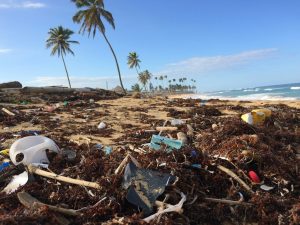Sustainability Focus: How Tourism Affects the Environment
Tourism, one of the fastest-growing global industries, provides significant opportunities for cultural exchange and economic prosperity. Yet, the question of how tourism affects the environment is crucial in our pursuit of sustainability. While tourism drives economic growth, its environmental cost is often substantial, warranting closer examination. This article explores how the environmental impacts of tourism manifest, their consequences on ecosystems, and potential mitigation strategies to achieve a balance between economic gains and environmental stewardship.
Understanding the Environmental Impact of Tourism
Tourism has flourished exponentially over recent decades, becoming an integral part of global economies. Iconic destinations like Venice, London, and Bali welcome millions of visitors annually, generating substantial revenue. However, this influx of tourists often comes at a steep environmental price.
The environmental impacts of tourism range from pollution to resource depletion. Overcrowded tourist hotspots face strained infrastructure, leading to habitat degradation and ecological imbalances. Recognising how tourism affects the environment can foster sustainable solutions that protect natural resources while supporting local economies.
Key Environmental Impacts of Tourism
Air Pollution from Tourism
Transportation is a cornerstone of tourism but contributes significantly to climate change. Flights, buses, and car travel release greenhouse gases, exacerbating global warming. Tourist hubs often experience higher air pollution levels due to increased traffic.
Promoting green travel options, such as electric vehicles and railways, can help reduce the carbon footprint.
Waste Generation and Disposal
Tourist destinations produce vast amounts of waste, particularly during peak seasons. Single-use plastics, litter, and insufficient waste management often result in polluted land and waterways. This problem exemplifies the tourism environmental damage caused by inadequate infrastructure.
Initiatives like banning plastics and implementing robust recycling programs are crucial for waste reduction.
Water Usage and Pollution
Tourism increases water demand, especially in arid regions, where resources are already scarce. Hotels, resorts, and recreational facilities consume large amounts of water, often leaving local communities underserved. Additionally, untreated wastewater from tourist areas pollutes rivers and oceans, harming marine ecosystems.
Encouraging sustainable water use can alleviate pressure on these vital resources.
Habitat Destruction and Biodiversity Loss
The construction of tourism infrastructure, such as hotels and resorts, often encroaches on natural habitats, causing deforestation and wildlife displacement. This destruction highlights another critical aspect of tourism environmental damage—the loss of biodiversity.
Implementing responsible tourism practices can help protect endangered species and their habitats.
Tourism’s Effect on Local Ecosystems
Coral Reefs and Marine Life
Coral reefs, among the most biodiverse ecosystems, are severely threatened by tourism. Activities like snorkelling, overfishing, and waste dumping damage marine habitats, jeopardising their health and longevity.
Policies promoting sustainable marine tourism are vital to preserving these fragile ecosystems.
Land Degradation
Land development for tourism infrastructure often leads to erosion, deforestation, and the displacement of native flora and fauna. Off-road activities, hiking, and overuse of trails contribute further to land degradation, underscoring how tourism affects the environment detrimentally.
The Economic vs. Environmental Trade-Offs
Tourism is an economic boon, creating jobs and bolstering local economies. However, its environmental toll—pollution, deforestation, and biodiversity loss—demands a balanced approach. By aligning economic growth with sustainability goals, nations can minimise the environmental impacts of tourism while ensuring long-term economic benefits.
Mitigating the Environmental Damage Caused by Tourism
Sustainable Tourism Practices
Eco-tourism promotes low-impact activities that support conservation and empower local communities. Encouraging responsible travel behaviours can significantly reduce tourism environmental damage while enhancing cultural and natural preservation.
Policy Changes for Environmental Protection
Governments can enforce carbon taxes, regulate waste disposal, and incentivise green certifications to reduce tourism’s environmental toll. Collaborative efforts between industries and policymakers are essential for driving systemic change.
Role of Tourism Operators
Tourism operators have a unique opportunity to adopt sustainable practices, such as sourcing local materials, investing in renewable energy, and educating tourists. Their leadership can reduce tourism’s ecological footprint and inspire others to follow suit.
Read about the role of tourism operators in achieving sustainability.
The Future of Sustainable Tourism
Technological Innovations
Advances in technology, such as solar-powered hotels and electric transportation, can mitigate the environmental impacts of tourism. These innovations promise to make tourism more sustainable, enabling growth without significant ecological harm.
Explore technological breakthroughs in sustainable tourism.
Educating Tourists
Tourists play a pivotal role in reducing their environmental impact. Awareness campaigns can encourage responsible behaviours, such as minimising waste, conserving water, and supporting local ecotourism ventures.
Conclusion
Tourism has a profound impact on the environment, from air pollution and waste generation to habitat destruction and biodiversity loss. Addressing how tourism affects the environment is critical for preserving our planet’s ecosystems while maintaining economic prosperity.
By embracing sustainable practices, supporting eco-friendly policies, and educating travellers, we can mitigate the environmental impacts of tourism and foster a greener future for all. Choose responsible travel options and advocate for sustainable tourism today. Learn how to make a difference here.


